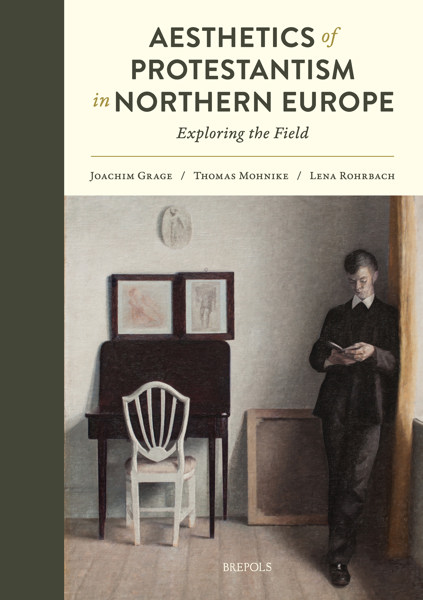
Forgotten Roots of the Nordic Welfare State in Protestant Cultures
Thomas Mohnike, Søren Blak Hjortshøj (eds)
- Pages: 264 p.
- Size:178 x 254 mm
- Illustrations:3 b/w, 1 col.
- Language(s):English
- Publication Year:2025
- € 89,00 EXCL. VAT RETAIL PRICE
- ISBN: 978-2-503-61263-8
- Hardback
- Available
- € 89,00 EXCL. VAT RETAIL PRICE
- ISBN: 978-2-503-61264-5
- E-book
- Available
The present volume explores the often forgotten roots in Protestant milieus in several case studies from the seventeenth century until today, focusing on the function of aesthetics in the creation of the welfare state model.
- Political & institutional history (c. 1501-1800)
- Protestantism & Protestant Churches
- Reformation & Counter-Reformation
- Cultural & intellectual history (c. 1501-1800)
- Scandinavian & Baltic lands (c. 1501-1800)
- Political & institutional history
- Cultural & intellectual history
- Scandinavia & Baltic lands
Søren Blak Hjortshøj is Post-Doc at Henrik Pontoppidan Center at Syddansk universitet.
Thomas Mohnike is professor in Scandinavian Studies at the Université de Strasbourg.
The Nordic welfare state of the 20th century has been hailed around the world as a model of how to build democratic and egalitarian societies. It has often been described as a project of social democracy, often following a narrative of secularization and rationalization of society. However, some of the most important actors and ideas of the "Scandinavian Sonderweg" had their roots in Protestant, often Pietist and revivalist milieus that dreamed of creating an egalitarian community. The present volume explores these often forgotten roots in several case studies of phenomena from the seventeenth to the twenty-first century, focusing primarily on questioning the function of aesthetics in the creation of the welfare state model. We argue that aesthetics and what Friedrich Schiller called aesthetic education played an important, unifying role for Nordic societies. These aesthetics were shaped by Protestant ideas and practices. Through references to the then widespread circulation of educational texts based on Luther's catechism, the later pietistic catechism of Erik Pontoppidan, Nordic hymnbooks, and practices such as communal singing and preaching in church, church coffee, reading circles, and conventicle meetings, a common aesthetic language emerged that unified different social groups and their competing goals and claims. Civic actors and movements learned specific ways to engage in society, to develop practices of internalizing responsibility, (self)critique, and accountability, and to communicate and develop a more democratic modern civic sphere. We therefore propose to look at this history from the perspective of a historically changing aesthetic as an integrating principle for understanding the political, social, cultural, economic and many other aspects of the Nordic welfare state.
Forgotten Roots of the Nordic Welfare State in Protestant Cultures
Søren Blak Hjortshøj, Thomas Mohnike
The Nordic Welfare State, the Pastoral Enlightenment, and Franz Julius Lütkens (1650–1712), Court Preacher to King Frederick IV of Denmark and Norway
Douglas H. Shantz
Dimensions of Trust. Lutheran Pastors on the Eve of the Scandinavian Welfare State — The Case of Norway, 1537–1814
Arne Bugge Amundsen
The Role of Hymns in the Norwegian Church, Culture, and Society
Vigdis Berland Øystese
Bucolics, Public Welfare and Agricultural Progress. Models of an Ideal Economic Past in Eighteenth-Century Sweden
Bernd Roling
‘I to kan utrette store ting sammen’. The Narrative Reintegration of Protestant Thought into Norwegian Labor Movement Discourse in Two Novels by Johan Falkberget
Karl Clemens Kübler
The Price of Giving: Charity, Welfare, and Lutheran Alienation in Swedish Social and Devotional Fiction at the Turn of the Twentieth Century. Some Examples
Beata Agrell
The Protestant Pastor and the Anti‑Authoritarian Rural Protest Culture in Henrik Pontoppidan’s Det Forjættede Land. Hopes and Fears of the Modern Democratic Civil Sphere
Søren Blak Hjortshøj
Work and Salvation. Selma Lagerlöf and Protestant Ethics of Welfare
Thomas Mohnike
Son of a Preacher Man. Complexity and Ambivalence in Henrik Pontoppidan’s Views on the Danish Church and it’s Pastors
Nils Gunder Hansen
A Communion of Swedes? On Protestantism in Vilhelm Moberg’s Emigrants series (1949–1959)
Frederike Felcht
From Common Prayer to Morgonsamling. Protestant Mystique in Welfare State Schooling?
Piero Simeone Colla
Secrecy, Conspiracy, Enchantment: The Conditions of (Dis)belief in 1980s Sweden
Pehr Englén
The Fantastic in the Nordic Welfare State. Secularization and rationalization in Let the Right One In by John Ajvide Lindqvist
Maria Hansson
A Nordic Paradox. Religion in Politics
Frédérique Harry


